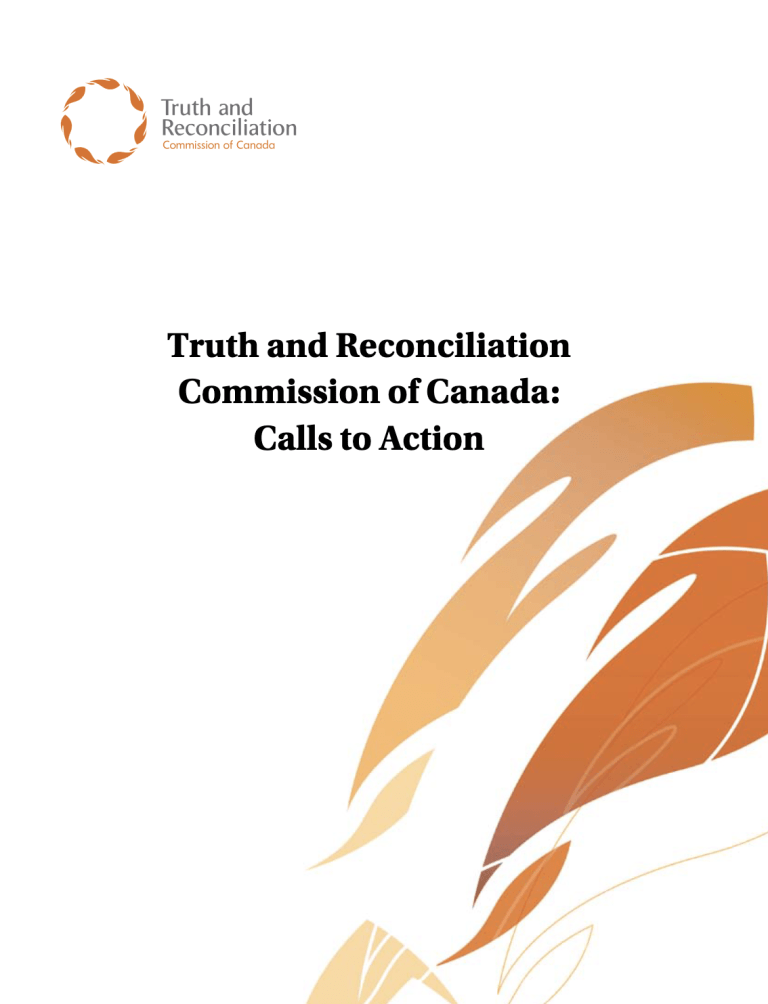19 search results
for
International human rights
Reconciliation
Settlement agreement parties and the United Nations Declaration on the Rights of Indigenous Peoples
Recommendation 49: We call upon all religious denominations and faith groups who have not already done so to repudiate concepts used to justify European sovereignty over Indigenous lands and peoples, such as the Doctrine of Discovery and terra nullius.-
Category and theme:
Groups affected:
Location of recommendation:
Reconciliation
Equity for Aboriginal people in the legal system
Recommendation 50: In keeping with the United Nations Declaration on the Rights of Indigenous Peoples, we call upon the federal government, in collaboration with Aboriginal organizations, to fund the establishment of Indigenous law institutes for the development, use, and understanding of Indigenous laws and access to justice in accordance with the unique cultures of Aboriginal peoples in Canada.-
Category and theme:
Audience:
Groups affected:
Location of recommendation:
Reconciliation
Professional development and training for public servants
Recommendation 57: We call upon federal, provincial, territorial, and municipal governments to provide education to public servants on the history of Aboriginal peoples, including the history and legacy of residential schools, the United Nations Declaration on the Rights of Indigenous Peoples, Treaties and Aboriginal rights, Indigenous law, and Aboriginal–Crown relations. This will require skills based training in intercultural competency, conflict resolution, human rights, and anti-racism.-
Category and theme:
Audience:
Groups affected:
Location of recommendation:
Reconciliation
Museums and archives
Recommendation 67: We call upon the federal government to provide funding to the Canadian Museums Association to undertake, in collaboration with Aboriginal peoples, a national review of museum policies and best practices to determine the level of compliance with the United Nations Declaration on the Rights of Indigenous Peoples and to make recommendations.-
Category and theme:
Groups affected:
Location of recommendation:
Reconciliation
Museums and archives
Recommendation 68: We call upon the federal government, in collaboration with Aboriginal peoples, and the Canadian Museums Association to mark the 150th anniversary of Canadian Confederation in 2017 by establishing a dedicated national funding program for commemoration projects on the theme of reconciliation.-
Category and theme:
Groups affected:
Location of recommendation:
Reconciliation
Museums and archives
Recommendation 69: We call upon Library and Archives Canada to:- Fully adopt and implement the United Nations Declaration on the Rights of Indigenous Peoples and the United Nations Joinet-Orentlicher Principles, as related to Aboriginal peoples’ inalienable right to know the truth about what happened and why, with regard to human rights violations committed against them in the residential schools.
- Ensure that its record holdings related to residential schools are accessible to the public.
- Commit more resources to its public education materials and programming on residential schools.
-
Category and theme:
Audience:
Groups affected:
Location of recommendation:
Reconciliation
Museums and archives
Recommendation 70: We call upon the federal government to provide funding to the Canadian Association of Archivists to undertake, in collaboration with Aboriginal peoples, a national review of archival policies and best practices to:- Determine the level of compliance with the United Nations Declaration on the Rights of Indigenous Peoples and the United Nations Joinet-Orentlicher Principles, as related to Aboriginal peoples’ inalienable right to know the truth about what happened and why, with regard to human rights violations committed against them in the residential schools.
- Produce a report with recommendations for full implementation of these international mechanisms as a reconciliation framework for Canadian archives.
-
Category and theme:
Groups affected:
Location of recommendation:
Reconciliation
Media and reconciliation
Recommendation 86: We call upon Canadian journalism programs and media schools to require education for all students on the history of Aboriginal peoples, including the history and legacy of residential schools, the United Nations Declaration on the Rights of Indigenous Peoples, Treaties and Aboriginal rights, Indigenous law, and Aboriginal–Crown relations.-
Category and theme:
Audience:
Groups affected:
Location of recommendation:
Reconciliation
Business and reconciliation
Recommendation 92: We call upon the corporate sector in Canada to adopt the United Nations Declaration on the Rights of Indigenous Peoples as a reconciliation framework and to apply its principles, norms, and standards to corporate policy and core operational activities involving Indigenous peoples and their lands and resources. This would include, but not be limited to, the following:- Commit to meaningful consultation, building respectful relationships, and obtaining the free, prior, and informed consent of Indigenous peoples before proceeding with economic development projects.
- Ensure that Aboriginal peoples have equitable access to jobs, training, and education opportunities in the corporate sector, and that Aboriginal communities gain long-term sustainable benefits from economic development projects.
- Provide education for management and staff on the history of Aboriginal peoples, including the history and legacy of residential schools, the United Nations Declaration on the Rights of Indigenous Peoples, Treaties and Aboriginal rights, Indigenous law, and Aboriginal–Crown relations. This will require skills based training in intercultural competency, conflict resolution, human rights, and anti-racism.
-
Category and theme:
- Culture and language ,
- Decolonization and Indigenous rights ,
- Discrimination and hate ,
- Economic inequality ,
- Education and employment ,
- Human rights system ,
- Income insecurity and benefits ,
- Indigenous rights and self-governance ,
- International human rights ,
- Poverty and economic inequality ,
- Public education and reconciliation ,
- Racism ,
- Representation and leadership
Audience:
Groups affected:
Location of recommendation:
